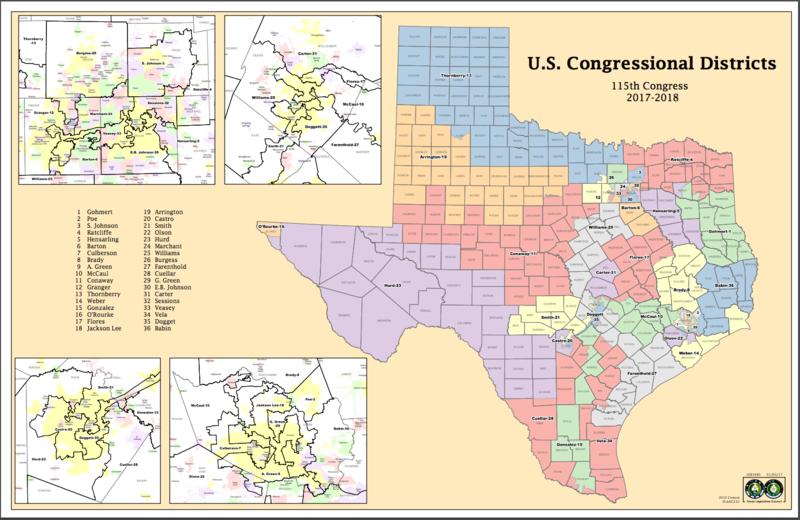We are moving along in this process after such a long long looooooooooooooooong wait to get here.
A three-judge panel on Monday denied Texas Attorney General Ken Paxton’s request to appeal a March ruling that said the Legislature intentionally discriminated against minority voters when it approved new congressional districts in 2011.
Texas needed the federal court’s permission to appeal because the ruling was not a final order in the case.
During a hearing Thursday in San Antonio, the judges voiced skepticism about letting a separate appeal move forward on the 2011 map while the panel began the final phase of the case — a claim that the current U.S. House and Texas House maps, adopted in 2013, also discriminated against African-American and Latino voters.
The court also rejected Paxton’s request to toss out claims that the 2013 maps were drawn to intentionally discriminate against minority voters in violation of the Constitution’s 14th Amendment.
Paxton had argued that the maps adopted by the Legislature in 2013 had originally been drawn by the three-judge court to cure voting rights problems found in the 2011 maps.
“The Legislature was entitled to presume that this court acted in good faith and without a racially discriminatory purpose,” Paxton argued.
But, the court ruled, the legal challenges focus on the intent of lawmakers, not judges, in adopting the U.S. House and Texas House district maps. Resolving those claims involves matters not appropriately decided on summary judgment, the order said.
See here and here for the background. The DMN adds on:
The court denied the state’s motions for summary judgments on its failure to create districts where there would be more Latino and black voting strength, and on assertions that the state used its “county line rule” to avoid doing so.
The county line rule stipulates that counties apportioned to districts must remain within that district. But plaintiffs argued that the state used the rule as a shield to avoid its obligation under the federal Voting Rights Act to create districts that would increase minority voting strength.
The judges denied a motion to resolve whether the state’s 2013 redrawing of House District 90 in Tarrant County violated the Voting Rights Act and the 14th Amendment. Plaintiffs argued that the district was drawn to dilute Latino voting strength, but the state said the district has a contingent of active Latino voters and elected one, U.S. Rep. Ramon Romero, to its congressional seat.
The panel still needs to resolve the state’s requests and could issue a trial date this week. An attorney for the Mexican American Legislative Caucus, one of the lead plaintiffs in the case, said last week he was confident there would be a summer trial. When asked Monday if that confidence remained, Jose Garza said: “You bet!”
Texas had also asked to appeal the court’s findings on the 2011 maps to the conservative-leaning 5th Circuit Court of Appeals, where presumably it would have a more favorable audience. Because the case is being handled by a special panel, the court denied that motion, and any appeals will go to the U.S. Supreme Court.
At the time those stories came out, the judges had not released an order specifying a trial date. Now they have.
With the 2018 election cycle looming, a federal judge panel has set July 10 as the start date for a trial over the state’s House and congressional political maps.
In an order filed Monday, the three judges presiding over the case scheduled the five-day trial following a pair of rulings that found Texas lawmakers intentionally discriminated against minority voters in initially drawing each map in 2011.
“The Court is aware of the condensed schedule that must be implemented in light of the 2018 election deadlines, and expects counsel and the parties to work diligently to meet the deadlines contained herein,” the panel wrote.
Rick Hasen has a copy of the scheduling order, which lays out all of the deadlines, the scope of evidence, how many maps each side can propose, and more. Any appeals will go straight to SCOTUS. Lord willing we’ll have ourselves some maps by the end of September or so. Michael Li has more.

